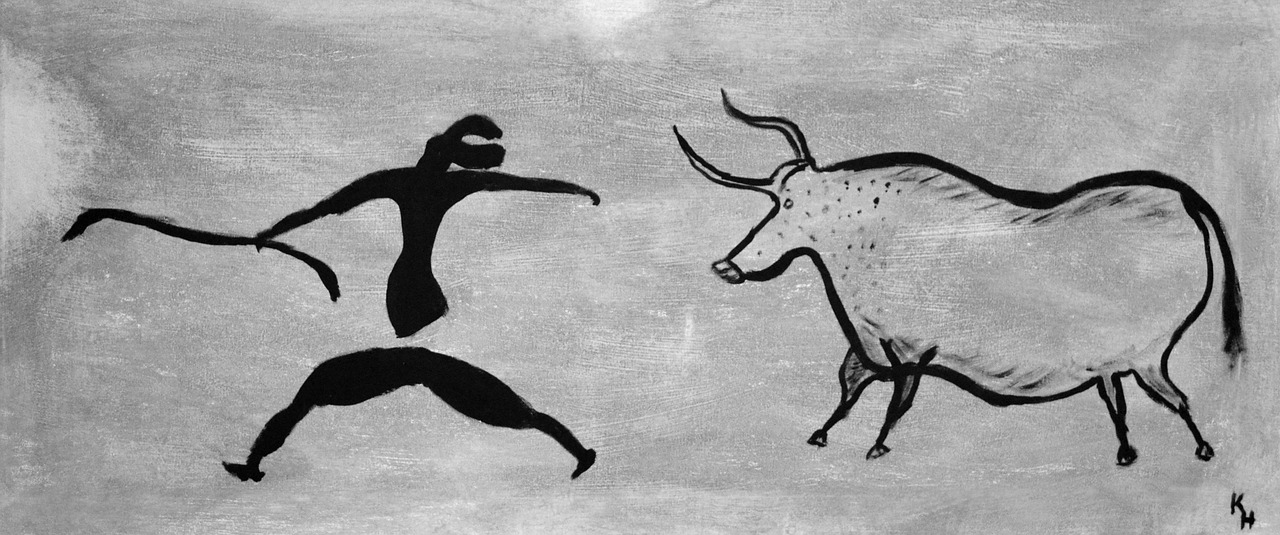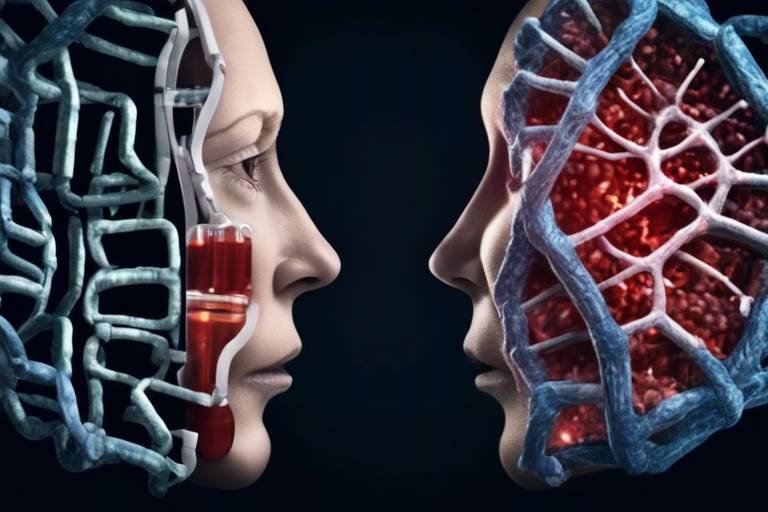The Philosophy and Science of Human Aging
Aging is an inevitable journey that every human being embarks upon, yet it remains one of the most profound mysteries of our existence. It intertwines the realms of philosophy and science, creating a rich tapestry of inquiry that seeks to answer fundamental questions about life, identity, and the very nature of being. As we delve into the intricate relationship between philosophical perspectives and scientific research on human aging, we uncover key concepts and theories that not only enhance our understanding of the aging process but also challenge us to rethink our approach to growing older.
At its core, aging is not merely a biological phenomenon; it is a multifaceted experience that encompasses biological, psychological, and social dimensions. This complexity invites us to examine the processes that contribute to our physical decline and cognitive changes over time. Have you ever noticed how your body feels different as the years go by? Or how your perspective on life alters with age? These reflections highlight the importance of understanding aging from both a scientific and philosophical standpoint.
Philosophy offers profound insights into the meaning of aging, prompting us to explore questions about our identity, purpose, and the human experience. Different philosophical traditions provide varied interpretations of what it means to grow old. For instance, the Stoics teach us to accept aging as a natural part of life, encouraging a focus on virtue and inner peace rather than succumbing to the despair of physical decline. This perspective can empower individuals to cultivate resilience, which is crucial in navigating the challenges that come with aging.
Resilience is like a mental muscle; the more we exercise it, the stronger it becomes. By developing emotional strength, we can maintain a positive outlook and adapt to the changes that accompany growing older. Embracing change becomes essential for a fulfilling aging experience. Just as a tree sheds its leaves in autumn to prepare for new growth, accepting the inevitability of aging can lead to personal growth and a deeper appreciation for life’s transient nature.
Moreover, aging raises profound existential questions about life's purpose and meaning. What legacy do we want to leave behind? How do we find joy in our later years? Exploring these inquiries can foster a deeper understanding of ourselves and enhance the quality of life as we age. It invites us to reflect on what truly matters, encouraging us to cherish our relationships, experiences, and the wisdom we accumulate over time.
On the scientific front, research into aging focuses on biological mechanisms, genetics, and environmental factors. Understanding these elements can lead to advancements in health and longevity, ultimately improving the quality of life for older adults. For example, the concept of cellular aging involves processes such as telomere shortening and oxidative stress. These mechanisms play a significant role in the aging process and have far-reaching implications for health and disease prevention.
Furthermore, lifestyle choices significantly influence the aging process. Adopting healthy habits—like a balanced diet, regular exercise, and social engagement—can mitigate age-related decline and promote longevity and well-being. Imagine your body as a finely tuned machine; the fuel you provide it determines how well it operates over time. Making conscious choices today can lead to a healthier tomorrow.
In conclusion, the philosophy and science of human aging are intricately linked, offering us a comprehensive framework to understand this universal experience. By embracing both perspectives, we can navigate the aging process with grace, resilience, and a renewed appreciation for life. As we continue to explore the depths of aging, we may discover not just how to extend our years but how to enrich them, making each moment count.
- What is the main focus of aging research? Aging research primarily investigates biological mechanisms, environmental factors, and lifestyle choices that influence the aging process.
- How can philosophy help us understand aging? Philosophy provides insights into the meaning of aging, helping us explore questions about identity, purpose, and the human experience.
- What role does resilience play in aging? Resilience helps individuals cope with the challenges of aging, promoting a positive outlook and adaptability to change.
- Can lifestyle choices impact how we age? Yes, adopting healthy habits such as a balanced diet, regular exercise, and social engagement can significantly influence the aging process.

The Nature of Aging
Aging is not just a number; it's a multi-faceted journey that intertwines biological, psychological, and social elements. Think of aging as a complex tapestry, where each thread represents different aspects of our lives. As we age, our bodies undergo physical changes, our minds experience cognitive shifts, and our social interactions evolve. Understanding the nature of aging requires us to look beyond mere years and delve into the intricate processes that contribute to our physical decline and cognitive changes over time.
Biologically, aging can be viewed as a gradual deterioration of cellular function. This decline is often marked by several key factors, including telomere shortening, which affects our DNA, and oxidative stress, which damages our cells. To illustrate, consider telomeres as the protective caps at the ends of our chromosomes. Each time a cell divides, these caps shorten, eventually leading to cellular aging and death. This process is akin to a candle burning down; as the wax diminishes, the flame flickers and eventually goes out. Understanding these biological mechanisms helps us appreciate the importance of cellular health and its role in longevity.
On a psychological level, aging brings about changes in our mental faculties and emotional well-being. As we grow older, we may face challenges such as memory decline, shifts in personality, and varying emotional responses. However, this phase of life can also be a time of profound self-discovery and personal growth. For instance, many individuals report a greater sense of peace and contentment in their later years, often attributed to accumulated life experiences and wisdom. It’s as if the clutter of youthful worries gradually clears, revealing a clearer path toward what truly matters.
Socially, aging can alter our relationships and the way we interact with the world. As friends and family members pass away or move on, we may find ourselves feeling isolated. Yet, this phase also opens doors to new relationships and communities. Engaging with others—whether through hobbies, volunteer work, or social clubs—can significantly enhance our quality of life. It’s as if aging is a dance; while some partners may step away, new ones can join, creating a rich and varied experience.
In summary, the nature of aging is a complex interplay of biological, psychological, and social factors. Embracing this complexity allows us to navigate the aging process with greater awareness and acceptance. By understanding the multifaceted nature of aging, we can equip ourselves with the tools to lead fulfilling lives as we grow older. Life, after all, is not merely about the years we accumulate but about the richness of experiences we gather along the way.
- What is the most significant factor influencing aging? Aging is influenced by a combination of genetics, lifestyle choices, and environmental factors.
- Can aging be reversed? While we cannot reverse aging, certain lifestyle changes can mitigate its effects and promote healthier aging.
- How does social interaction affect aging? Social engagement can significantly enhance emotional well-being and overall quality of life in older adults.

Aging is not merely a biological process; it is also a profound philosophical journey that invites us to reflect on our existence, identity, and the essence of life itself. Different philosophical traditions offer unique insights into what it means to grow old, often challenging conventional views and encouraging deeper introspection. For instance, the Eastern philosophies often emphasize the cyclical nature of life, viewing aging as a natural progression rather than a decline. This contrasts sharply with the Western perspective, which frequently associates aging with loss and decay.
One of the most compelling philosophical frameworks comes from Stoicism, which teaches that aging should be embraced with grace and acceptance. According to Stoic thought, one must focus on cultivating inner virtue and maintaining peace of mind, regardless of the physical changes that come with aging. The Stoics believed that by understanding and accepting the inevitability of aging, individuals could find a sense of freedom and empowerment. This acceptance can be likened to a tree shedding its leaves in autumn; while it may seem like a loss, it is a necessary part of the life cycle that ultimately leads to renewal.
Resilience plays a vital role in how we navigate the challenges that accompany aging. It is the emotional strength that allows individuals to adapt to change and maintain a positive outlook, even in the face of adversity. Those who cultivate resilience can better manage the psychological impacts of aging, such as loneliness and loss. This emotional fortitude can be developed through practices like mindfulness, which encourages a present-focused attitude that helps individuals appreciate life as it unfolds. Just as a sturdy ship can weather a storm, resilient individuals can withstand the tumultuous waves of aging.
Embracing change is essential for a fulfilling aging experience. The acceptance of aging can lead to profound personal growth and a deeper appreciation for life’s transient nature. Philosophers like Martin Heidegger emphasize the importance of confronting our mortality, suggesting that an awareness of our finite existence can enrich our experiences and relationships. By acknowledging the impermanence of life, we can learn to cherish each moment, transforming the aging process from a source of fear into an opportunity for deeper connection and understanding.
The aging process inevitably raises profound existential questions about life's purpose and meaning. What does it mean to have lived a good life? How do we define success as we grow older? These inquiries can foster a deeper understanding of oneself and enhance the quality of life in later years. Engaging with these questions can be akin to embarking on a philosophical quest, where the journey itself becomes as significant as the answers we seek. This exploration can lead to a greater sense of fulfillment and peace as we navigate the final chapters of our lives.
In conclusion, the philosophical perspectives on aging encourage us to view this stage of life not as a decline but as a rich tapestry of experiences, insights, and opportunities for growth. By embracing the wisdom of various philosophical traditions, we can cultivate a more profound appreciation for the aging process, transforming it into a journey of self-discovery and resilience.
- What is the Stoic view on aging?
Stoicism teaches acceptance of aging as a natural part of life, focusing on inner virtue rather than physical decline. - How can resilience help in aging?
Resilience allows individuals to adapt to changes and maintain a positive outlook, helping them navigate the challenges of aging. - Why is embracing change important in aging?
Accepting change can lead to personal growth and a deeper appreciation for life's transient nature. - What existential questions arise with aging?
Aging prompts inquiries about life's purpose and meaning, leading to a deeper understanding of oneself.

The Stoic View on Aging
When we delve into the Stoic philosophy, we uncover a profound approach to aging that emphasizes acceptance and resilience. Stoicism teaches us that aging is not something to dread, but rather a natural progression of life that we should embrace. Imagine life as a river; as it flows, we encounter various bends and turns, each representing a different stage of our existence. The Stoics remind us that, just like the river, aging is inevitable and should be met with grace.
At the heart of Stoicism is the idea of focusing on what we can control. While we cannot stop the physical changes that come with aging, we can control our reactions to these changes. This philosophy encourages us to cultivate virtue and seek inner peace, rather than getting caught up in societal pressures or the superficial aspects of youth. Stoics believe that by shifting our focus from external appearances to internal strength, we can navigate the challenges of growing older with dignity.
In practical terms, this means adopting a mindset that values wisdom over physical prowess. As we age, we accumulate experiences that shape our understanding of the world. The Stoic view posits that this accumulation of knowledge is a gift, allowing us to approach life’s challenges with a seasoned perspective. For instance, think of a wise elder who offers guidance based on years of experience; their insights are invaluable, showing that aging can lead to a deeper understanding of life.
Moreover, resilience plays a crucial role in the Stoic approach to aging. Life is a series of ups and downs, and the ability to bounce back from adversity is vital as we grow older. By cultivating emotional strength, we equip ourselves to handle the inevitable losses and changes that accompany aging. This resilience can foster a positive outlook, enabling us to appreciate the present moment rather than lamenting what has passed.
In summary, the Stoic view on aging invites us to shift our perspective. Instead of viewing aging as a decline, we can see it as a journey filled with opportunities for growth and self-discovery. By embracing change, focusing on virtue, and cultivating resilience, we can navigate the aging process with a sense of purpose and fulfillment. After all, as the Stoics might say, it’s not the years in our life that count, but the life in our years.

The Role of Resilience
Resilience plays a pivotal role in how we navigate the winding road of aging. Imagine life as a river; sometimes it flows smoothly, while at other times, it rushes through turbulent rapids. Just like a skilled kayaker learns to maneuver through the waves, embracing resilience enables us to adapt and thrive amidst the challenges that aging presents. It's not merely about bouncing back from adversity; it's about growing stronger through the experiences we encounter.
As we age, we face various hurdles—be it health issues, loss of loved ones, or shifts in our social circles. Resilience acts as our internal compass, guiding us through these transitions. It encourages us to cultivate a positive mindset, helping us focus on what we can control rather than what we cannot. This shift in perspective can be transformative. For instance, rather than lamenting physical decline, resilient individuals often find new ways to engage with life, whether through hobbies, social interactions, or volunteering.
Moreover, resilience is not an innate trait; it can be developed and strengthened over time. Here are some key components that contribute to building resilience:
- Emotional Awareness: Recognizing and understanding our emotions allows us to respond to challenges more effectively.
- Social Support: Maintaining strong relationships with family and friends provides a safety net during difficult times.
- Problem-Solving Skills: Developing the ability to approach problems with a solution-oriented mindset fosters adaptability.
- Self-Care Practices: Engaging in activities that promote physical and mental well-being strengthens our resilience.
In essence, resilience is about finding meaning in the aging process. It's about reframing our narrative from one of loss to one of growth. When we embrace resilience, we not only enhance our own lives but also inspire those around us. We become living testaments to the notion that aging can be a beautiful journey filled with opportunities for connection, learning, and joy.
As we continue to explore the philosophical and scientific dimensions of aging, it becomes evident that resilience is not just a personal attribute but a vital aspect of our collective experience. By fostering resilience within ourselves and our communities, we can create a supportive environment that celebrates the richness of aging, making it a phase of life characterized by wisdom, fulfillment, and continued discovery.
- What is resilience in the context of aging? Resilience refers to the ability to adapt and thrive despite the challenges that come with aging, fostering a positive mindset and emotional strength.
- How can I build resilience as I age? You can build resilience by developing emotional awareness, maintaining social connections, enhancing problem-solving skills, and practicing self-care.
- Why is resilience important for older adults? Resilience helps older adults navigate life changes more effectively, leading to improved mental health and overall well-being.

Embracing Change
Embracing change is not just a cliché; it’s a vital part of the aging experience. Just think about it: life is a series of transitions, and aging is one of the most profound. As we grow older, we encounter new challenges and milestones that can feel daunting. However, rather than resisting these changes, embracing them can lead to a fulfilling and enriched life. Imagine aging as a river that flows through different landscapes; each twist and turn brings new sights and experiences. By accepting the inevitability of change, we can navigate the waters of life with grace and resilience.
One of the most significant shifts we face as we age is the change in our physical abilities. It’s easy to feel disheartened when we can no longer perform tasks as we once did. However, acknowledging this change opens the door to new opportunities. For instance, many individuals find joy in exploring new hobbies that are more suited to their evolving skills. Whether it’s painting, gardening, or learning a musical instrument, adapting to our physical changes can lead to a renewed sense of purpose.
Moreover, embracing change can enhance our relationships. As we age, our social circles may shift due to various factors such as retirement, relocation, or the loss of loved ones. Instead of viewing this as a loss, we can see it as an opportunity to forge new connections. Engaging with different communities, whether through volunteering, joining clubs, or participating in local events, can enrich our lives and provide a sense of belonging. Change can be a catalyst for personal growth, allowing us to meet new people and form meaningful relationships.
Another critical aspect of embracing change is our mindset. A positive attitude towards aging can significantly influence our overall well-being. Research suggests that individuals who maintain an optimistic outlook tend to experience better health outcomes and greater life satisfaction. To cultivate this mindset, we can practice gratitude, focus on our strengths, and celebrate our achievements, no matter how small. It’s about shifting our perspective from what we’ve lost to what we can gain.
In conclusion, embracing change as we age is essential for a fulfilling life. By accepting the transitions that come with growing older, we can discover new passions, build meaningful relationships, and maintain a positive outlook. Aging doesn’t have to be a decline; it can be an adventure filled with growth and discovery. So, let’s approach this journey with open hearts and minds, ready to embrace whatever comes our way.
- Why is embracing change important in aging? Embracing change allows individuals to adapt to new circumstances, leading to personal growth and a more fulfilling life.
- How can I maintain a positive outlook on aging? Practicing gratitude, focusing on strengths, and celebrating small achievements can help cultivate a positive mindset.
- What are some activities I can pursue as I age? Consider exploring hobbies like painting, gardening, or joining local clubs to engage with new communities.

Existential Questions in Aging
Aging is not just a biological process; it is a profound journey that invites us to confront some of life’s most challenging questions. As we grow older, we often find ourselves asking, What is the purpose of my life? and How do I find meaning in the years I have left? These existential questions can be both daunting and enlightening, prompting us to reflect deeply on our values, relationships, and legacy.
Consider the analogy of a book; each chapter represents a different phase of our lives. As we age, we may find ourselves revisiting earlier chapters, reflecting on the choices we made and the lessons we learned. This introspection can lead to a richer understanding of our personal narrative. It's not just about counting the years but making the years count. In this light, aging can be seen as an opportunity for growth and discovery rather than a decline.
Moreover, the process of aging often brings with it a shift in priorities. Many people begin to focus more on relationships, experiences, and personal fulfillment rather than material success. This shift can lead to a more profound sense of connection with others and a greater appreciation for the present moment. After all, as the famous philosopher Søren Kierkegaard noted, "Life can only be understood backwards; but it must be lived forwards." This perspective encourages us to embrace the journey, with all its ups and downs, as we search for meaning.
In grappling with these existential questions, it can be helpful to engage in self-reflection and dialogue with others. Consider asking yourself the following questions:
- What legacy do I want to leave behind?
- How can I contribute to my community in meaningful ways?
- What relationships are most important to me, and how can I nurture them?
- What brings me joy and fulfillment in my life?
By exploring these questions, we can cultivate a deeper understanding of ourselves and our place in the world. It’s also essential to recognize that we are not alone in this journey. Many people experience similar feelings and questions as they age. This shared experience can foster a sense of community and support, which is invaluable as we navigate the complexities of growing older.
Ultimately, the existential questions surrounding aging challenge us to live authentically and intentionally. They remind us that while we cannot control the passage of time, we can choose how we respond to it. As we embrace the inevitability of aging, we can also embrace the opportunity for personal growth, deeper connections, and a more meaningful life.
- What are some common existential questions people face as they age? Many people ponder questions about purpose, legacy, and relationships.
- How can I find meaning in my later years? Engaging in self-reflection, nurturing relationships, and contributing to your community can help.
- Is it normal to feel anxious about aging? Yes, it's completely normal to have these feelings; it's a natural part of the aging process.

The Science of Aging
This article explores the intricate relationship between philosophical perspectives and scientific research on human aging, highlighting key concepts, theories, and implications for understanding the aging process.
Aging is a complex phenomenon encompassing biological, psychological, and social dimensions. Understanding its nature involves examining the processes that contribute to physical decline and cognitive changes over time.
Philosophy offers insights into the meaning of aging, exploring questions about identity, purpose, and the human experience. Different philosophical traditions provide varied interpretations of what it means to grow old.
Stoicism emphasizes acceptance of aging as a natural part of life. This perspective encourages individuals to focus on virtue and inner peace rather than external circumstances and physical decline.
Resilience is crucial in navigating the challenges of aging. Developing emotional strength can help individuals maintain a positive outlook and adapt to the changes that come with growing older.
Embracing change is essential for a fulfilling aging experience. Accepting the inevitability of aging can lead to personal growth and a deeper appreciation for life's transient nature.
Aging raises profound existential questions about life's purpose and meaning. Exploring these inquiries can foster a deeper understanding of oneself and enhance the quality of life in later years.
The science of aging delves into the biological mechanisms that underlie the aging process. Researchers are constantly uncovering the intricate details of how our bodies change as we grow older. One of the key areas of focus is cellular aging, which involves various processes that affect our cells and, consequently, our overall health and longevity.
Cellular aging is influenced by several mechanisms, including telomere shortening and oxidative stress. Telomeres are protective caps at the ends of chromosomes that shorten each time a cell divides. Over time, this shortening can lead to cellular senescence, where cells stop dividing and functioning properly. This process is a significant contributor to age-related diseases. On the other hand, oxidative stress results from an imbalance between free radicals and antioxidants in the body, leading to cellular damage and accelerated aging.
To better understand the impact of these mechanisms, consider the following table that summarizes key aspects of cellular aging:
| Mechanism | Description | Implications |
|---|---|---|
| Telomere Shortening | Progressive shortening of telomeres with each cell division. | Increased risk of age-related diseases and cellular senescence. |
| Oxidative Stress | Imbalance between free radicals and antioxidants in the body. | Cellular damage leading to accelerated aging and chronic diseases. |
Moreover, lifestyle choices play a crucial role in the aging process. Factors such as diet, exercise, and social engagement can significantly influence how we age. For instance, a balanced diet rich in antioxidants can combat oxidative stress, while regular physical activity helps maintain muscle mass and cardiovascular health. Social interactions are equally important, as they can reduce feelings of loneliness and promote mental well-being.
Incorporating healthy habits can lead to a more vibrant and fulfilling life as we age. Here are some key lifestyle choices that can positively impact the aging process:
- Nutrition: Emphasize a diet rich in fruits, vegetables, whole grains, and lean proteins.
- Physical Activity: Aim for at least 150 minutes of moderate exercise per week.
- Mental Engagement: Challenge your brain with puzzles, reading, or learning new skills.
- Social Connections: Maintain relationships and engage in community activities.
In summary, the science of aging is a fascinating field that combines biology, lifestyle, and social factors. By understanding the mechanisms behind aging and making informed lifestyle choices, we can enhance our quality of life and embrace the journey of growing older.
Q: What is the primary cause of aging?
A: Aging is a complex process influenced by genetic, environmental, and lifestyle factors. Key mechanisms include cellular aging, telomere shortening, and oxidative stress.
Q: Can lifestyle choices really affect how we age?
A: Absolutely! Healthy lifestyle choices such as a balanced diet, regular exercise, and maintaining social connections can significantly impact the aging process and improve overall well-being.
Q: Is it possible to reverse aging?
A: While we cannot reverse aging, scientific advancements may help slow down the aging process and improve health in older age. Ongoing research continues to explore potential interventions.
Q: How can I maintain my mental health as I age?
A: Staying mentally active, engaging in social activities, and maintaining a healthy lifestyle are crucial for mental well-being as you age. Don't hesitate to seek support from friends, family, or professionals when needed.

Cellular Aging Mechanisms
Aging at the cellular level is a fascinating yet complex process that significantly influences our overall aging experience. One of the primary mechanisms of cellular aging is telomere shortening. Telomeres are protective caps located at the ends of chromosomes, and they play a crucial role in maintaining the integrity of our genetic information. With each cell division, these telomeres gradually shorten, which ultimately leads to cellular senescence—a state where cells can no longer divide. This phenomenon is akin to a fuse burning down; once it gets too short, the cell can no longer function optimally, contributing to the aging process.
Another vital mechanism is oxidative stress. This occurs when there is an imbalance between the production of free radicals—unstable molecules that can damage cells—and the body’s ability to counteract their harmful effects. Over time, oxidative stress can lead to cellular damage, affecting everything from DNA to proteins, and is implicated in various age-related diseases. Think of oxidative stress as rust on a car; without proper maintenance, the car deteriorates, just like our cells do when they are overwhelmed by free radicals.
Furthermore, the accumulation of damaged proteins and organelles within cells can also contribute to aging. The body has mechanisms to repair or remove damaged components, but as we age, these processes become less efficient. For instance, the function of lysosomes—organelles responsible for breaking down waste—declines with age, leading to a buildup of cellular debris. This accumulation can disrupt normal cellular function, much like how a cluttered room can hinder your ability to find what you need.
Interestingly, recent research has begun to explore the role of inflammation in cellular aging. Chronic low-grade inflammation, often referred to as "inflammaging," is increasingly recognized as a significant factor in the aging process. This persistent inflammatory state can accelerate cellular damage and promote the onset of age-related diseases, creating a vicious cycle that further exacerbates the aging process.
Understanding these cellular aging mechanisms is crucial, not only for scientists but for anyone interested in promoting healthy aging. By recognizing how these processes work, we can better appreciate the importance of lifestyle choices—like diet and exercise—in mitigating the effects of aging. For instance, certain antioxidants found in fruits and vegetables can help combat oxidative stress, while regular physical activity can promote cellular health and longevity.
| Cellular Aging Mechanisms | Description |
|---|---|
| Telomere Shortening | Progressive shortening of telomeres leads to cellular senescence. |
| Oxidative Stress | Imbalance between free radicals and antioxidants causes cellular damage. |
| Protein Accumulation | Inability to clear damaged proteins leads to cellular dysfunction. |
| Chronic Inflammation | Persistent inflammation accelerates aging and age-related diseases. |
In summary, cellular aging is a multi-faceted process influenced by various mechanisms. By understanding these mechanisms, we can make informed choices that may help us age more gracefully and maintain our health and vitality well into our later years.
- What are telomeres and why are they important? Telomeres are protective caps on the ends of chromosomes that shorten with each cell division, playing a key role in cellular aging.
- How does oxidative stress affect aging? Oxidative stress results from an imbalance of free radicals and antioxidants, leading to cellular damage and contributing to age-related diseases.
- Can lifestyle changes impact cellular aging? Yes, adopting a healthy diet, regular exercise, and stress management can mitigate the effects of cellular aging.
- What is chronic inflammation? Chronic inflammation is a prolonged inflammatory response that can accelerate the aging process and increase the risk of age-related diseases.

Impact of Lifestyle on Aging
This article explores the intricate relationship between philosophical perspectives and scientific research on human aging, highlighting key concepts, theories, and implications for understanding the aging process.
Aging is a complex phenomenon encompassing biological, psychological, and social dimensions. Understanding its nature involves examining the processes that contribute to physical decline and cognitive changes over time.
Philosophy offers insights into the meaning of aging, exploring questions about identity, purpose, and the human experience. Different philosophical traditions provide varied interpretations of what it means to grow old.
Stoicism emphasizes acceptance of aging as a natural part of life. This perspective encourages individuals to focus on virtue and inner peace rather than external circumstances and physical decline.
Resilience is crucial in navigating the challenges of aging. Developing emotional strength can help individuals maintain a positive outlook and adapt to the changes that come with growing older.
Embracing change is essential for a fulfilling aging experience. Accepting the inevitability of aging can lead to personal growth and a deeper appreciation for life's transient nature.
Aging raises profound existential questions about life's purpose and meaning. Exploring these inquiries can foster a deeper understanding of oneself and enhance the quality of life in later years.
Scientific research into aging focuses on biological mechanisms, genetics, and environmental factors. Understanding these elements can lead to advancements in health and longevity, improving the quality of life for older adults.
Cellular aging involves processes such as telomere shortening and oxidative stress. These mechanisms play a significant role in the aging process and have implications for health and disease prevention.
The impact of lifestyle on aging cannot be overstated. Our daily choices, from what we eat to how we move, play a significant role in how we experience the aging process. In essence, adopting a healthy lifestyle can be likened to investing in a savings account for your future well-being. The earlier you start, the more you can accumulate benefits over time.
Research has shown that certain lifestyle factors are closely linked to the rate of aging and overall health. For instance, a balanced diet rich in fruits, vegetables, whole grains, and lean proteins can provide essential nutrients that combat oxidative stress and inflammation, two key contributors to aging. On the other hand, a diet high in processed foods and sugars can accelerate the aging process.
Moreover, physical activity is another cornerstone of healthy aging. Regular exercise not only helps maintain physical strength and flexibility but also enhances mental health by reducing symptoms of anxiety and depression. Engaging in activities like walking, swimming, or even yoga can significantly improve your quality of life as you age. It's not just about adding years to your life; it's about adding life to your years.
Social engagement also plays a pivotal role in healthy aging. Maintaining strong relationships and staying connected with family and friends can lead to increased happiness and longevity. Studies have shown that older adults with active social lives tend to have better cognitive function and lower rates of depression.
To summarize, the key elements of a lifestyle that promotes healthy aging include:
- Balanced Diet: Focus on whole foods, rich in nutrients.
- Regular Exercise: Aim for at least 150 minutes of moderate exercise per week.
- Social Connections: Foster relationships that provide emotional support.
- Mental Stimulation: Engage in activities that challenge your brain.
By making conscious choices in these areas, individuals can significantly influence their aging process, leading to a healthier, more vibrant life in their later years.
1. What is the most important factor in healthy aging?
The most important factor in healthy aging is a combination of a balanced diet, regular physical activity, and strong social connections. These elements work together to promote both physical and mental well-being.
2. Can lifestyle changes really impact how we age?
Absolutely! Lifestyle changes can have a profound effect on the aging process. Healthy habits can slow down the biological aging process and improve the quality of life.
3. Is it too late to make changes to my lifestyle?
It's never too late to make positive changes! Even small adjustments can lead to significant improvements in health and well-being, no matter your age.
4. How does stress affect aging?
Chronic stress can accelerate the aging process by increasing inflammation and negatively impacting physical and mental health. Managing stress through mindfulness, exercise, and social support can mitigate these effects.
Frequently Asked Questions
- What is the nature of aging?
Aging is a multifaceted phenomenon that affects us biologically, psychologically, and socially. It encompasses physical decline, cognitive changes, and emotional shifts over time. Understanding aging involves examining how these various dimensions interact and influence our overall experience as we grow older.
- How do philosophical perspectives contribute to our understanding of aging?
Philosophy provides a framework for exploring the deeper meanings of aging. It raises questions about identity, purpose, and what it means to live a fulfilling life as we age. Different philosophical traditions, like Stoicism, offer unique insights that can help individuals navigate the complexities of growing older, emphasizing acceptance and resilience.
- What role does resilience play in the aging process?
Resilience is essential for coping with the inevitable changes that come with aging. It allows individuals to maintain a positive outlook and adapt to life's challenges. By developing emotional strength, older adults can embrace change and find meaning in their experiences, leading to a more fulfilling life.
- What are the scientific mechanisms behind aging?
Scientific research has identified several biological mechanisms involved in aging, such as telomere shortening and oxidative stress. These processes affect our cells and overall health. Understanding these mechanisms can lead to advancements in healthcare and strategies to enhance longevity and quality of life.
- How do lifestyle choices impact the aging process?
Lifestyle choices play a significant role in how we age. Factors like diet, exercise, and social engagement can greatly influence our physical and mental well-being as we get older. By adopting healthy habits, we can mitigate age-related decline and promote a longer, healthier life.
- What existential questions arise as we age?
Aging prompts us to confront profound existential questions about our life's purpose and meaning. These inquiries can lead to greater self-awareness and a deeper appreciation for life. Engaging with these questions can enhance our quality of life in our later years.



















